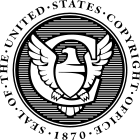- United States Copyright Office
-
United States Copyright Office 

Agency overview Formed 1897 Jurisdiction Federal government of the United States Headquarters Washington, D.C. Agency executive Maria Pallante, Register of Copyrights Parent agency Library of Congress Website www.copyright.gov The United States Copyright Office, a part of the Library of Congress, is the official U.S. government body that maintains records of copyright registration in the United States. It is used by copyright title searchers who are attempting to clear a chain of title for copyrighted works.
The head of the Copyright Office is called the Register of Copyrights. The current Register is Maria Pallante, who has held the office since 2011.
The Copyright Office is housed in the James Madison Memorial Building of the Library of Congress, at 101 Independence Avenue, SE, in Washington, DC.
Contents
History
The United States Constitution gives Congress the power to enact laws establishing a system of copyright in the United States, and the Copyright Act of 1790, the first federal copyright law, was enacted in May 1790 (with the first work being registered within two weeks). Originally, claims were recorded by Clerks of U.S. district courts. In 1870, copyright functions were centralized in the Library of Congress under the direction of the then Librarian of Congress Ainsworth Rand Spofford. The Copyright Office became a separate department of the Library of Congress in 1897, and Thorvald Solberg was appointed the first Register of Copyrights.[1]
Functions
The mission of the Copyright Office is to promote creativity by administering and sustaining an effective national copyright system. While the purpose of the copyright system has always been to promote creativity in society, the functions of the Copyright Office have grown to include the following:
Administering the copyright law
The Office examines all applications and deposits presented for registration of original and renewal copyright claims to determine their acceptability for registration under the provisions of the copyright law. The Office also records documents related to copyright ownership.
The Copyright Office records the bibliographic descriptions and the copyright facts of all works registered. The archives maintained by the Copyright Office are an important record of America’s cultural and historical heritage. Containing nearly 45 million individual cards, the Copyright Card Catalog housed in the James Madison Memorial Building comprises an index to copyright registrations in the United States from 1870 through 1977. Records after 1977 are maintained through an online database of more than 16 million entries.
As a service unit of the Library of Congress, the Copyright Office is part of the legislative branch of government. The Office provides copyright policy advice to Congress. At the request of Congress, the Copyright Office advises and assists the Congress in the development of national and international copyright policy; drafts legislation; and prepares technical studies on copyright-related matters.
The Compendium II: Copyright Office Practices manual documents the Copyright Office's practices in its administration of copyright law.
Providing information services to the public
The Copyright Office provides public information and reference services concerning copyrights and recorded documents. The public can keep up on developments in the Copyright Office by subscribing to U.S. Copyright Office NewsNet, a free electronic mailing list that issues periodic email messages to alert subscribers to hearings, deadlines for comments, new and proposed regulations, new publications, and other copyright-related subjects of interest. Subscribe on the Copyright Office website.
Library of Congress
In 1870, Congress passed a law that centralized the copyright system in the Library of Congress. No legislation was more important to the development of the Library than that law, which required all authors to deposit in the Library two copies of every book, pamphlet, map, print, and piece of music registered in the United States.
That partnership, created more than 130 years ago, has served the nation well. Supplying the information needs of the Congress, the Library of Congress has become the world’s largest library and the national library of America. This great repository of more than 126 million books, photographs, maps, films, documents, sound recordings, computer programs, and other items has been created largely through the operations of the copyright system, which brings deposits of every copyrighted work into the Library. In one recent year alone, the value of these deposits was more than $30 million.
Duties
The Copyright Office consults with interested copyright owners, industry and library representatives, bar associations, and other interested parties on issues related to the copyright law.
The Copyright Office promotes improved copyright protection for U.S. creative works abroad through its International Copyright Institute. Created within the Copyright Office by Congress in 1988, the International Copyright Institute provides training for high-level officials from developing and newly industrialized countries and encourages development of effective intellectual property laws and enforcement overseas.
The website has information about new copyright relevant legislation and a list of designated agents under the Digital Millennium Copyright Act (DMCA) and the Online Copyright Infringement Liability Limitation Act (OCILLA) and information about Copyright Arbitration Royalty Panel (CARP) system of ad hoc copyright royalty arbitrators (now being phased out and replaced by the Copyright Royalty Board).
See also
References
- ^ U.S. Copyright Office Circular 1a, United States Copyright Office: A Brief Introduction and History
External links
Categories:- Agencies of the United States Congress
- Copyright agencies
- Library of Congress
- United States copyright law
Wikimedia Foundation. 2010.
